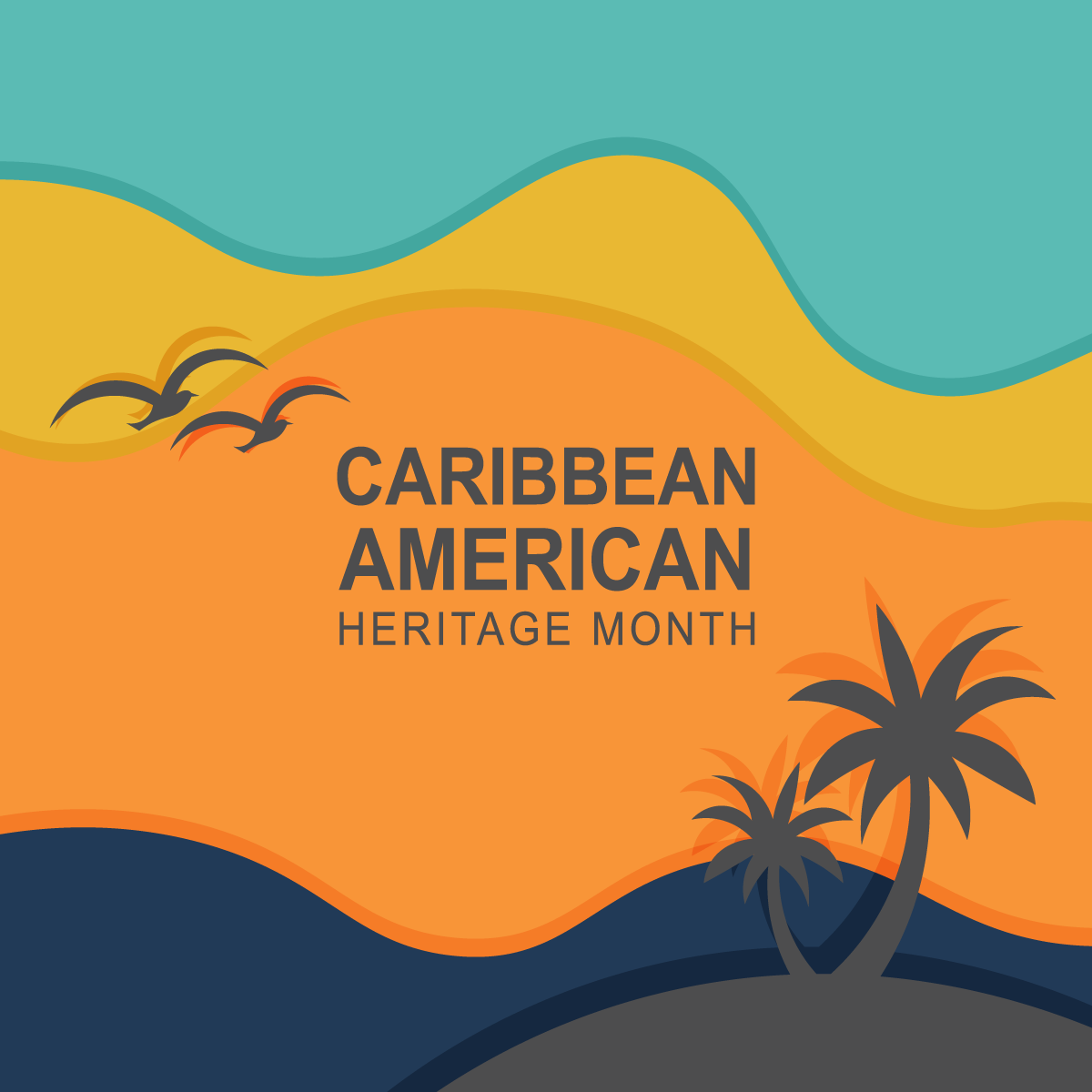Caribbean American Heritage Month, observed each June, honors the legacies of people from the Caribbean and their descendants who have helped shape American society. From early migrants and revolutionaries to today’s artists, scientists, and changemakers, Caribbean Americans have made extraordinary contributions, many of which have gone overlooked in mainstream historical narratives. This month offers an opportunity to uplift those stories, both past and present, and to celebrate the culture, creativity, and resilience of the Caribbean diaspora.
One of the most meaningful ways to introduce students to the experiences and accomplishments of Caribbean Americans is through children’s literature. The books shared below reflect a variety of Caribbean nations and traditions and can be used across subject areas, including social studies, geography, science, psychology, and the arts. Each story offers both depth and joy, inviting students to learn through culturally responsive and sustaining educational practices.
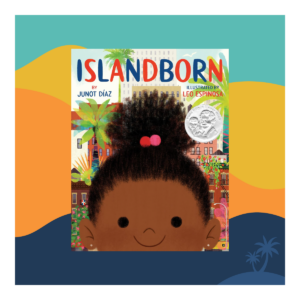 Islandborn by Junot Díaz
Islandborn by Junot Díaz
Islandborn follows Lola, a young girl who can’t remember the island she emigrated from. Through stories shared by her family and neighbors, Lola pieces together a vibrant mental picture of her homeland. Junot Díaz, a Dominican American and Pulitzer Prize-winning author, draws on his personal experiences to create a story about identity and the power of memory. This book honors Caribbean American family life and migration stories, showing how children can reclaim and celebrate their roots.
Classroom Connection: Use this book to launch personal storytelling projects. Students can interview family members about their heritage, map migration stories, or create cultural memory boxes. Lessons can tie into geography, sociology, and ELA by exploring how culture is passed down through generations.
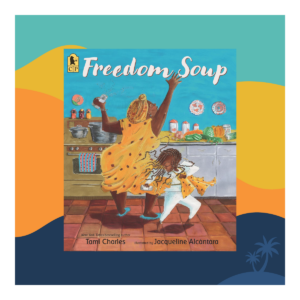 Freedom Soup by Tami Charles
Freedom Soup by Tami Charles
In this heartwarming story, Belle learns how to make traditional Haitian soup joumou with her grandmother and hears the powerful story of Haiti’s independence. Tami Charles, of Haitian descent and a former educator, blends cultural storytelling and history into a joyful intergenerational tradition. The book connects readers to food as memory and resistance, showcasing how Caribbean American families keep history alive through celebration.
Classroom Connection: Pair this book with a history lesson on the Haitian Revolution or the role of food in cultural resistance. In science or health class, explore the ingredients and nutrition of Caribbean recipes. Encourage students to write about a family tradition or recipe and its personal meaning.
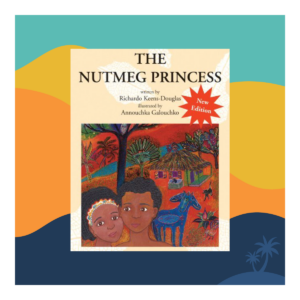 The Nutmeg Princess by Richardo Keens-Douglas
The Nutmeg Princess by Richardo Keens-Douglas
Set in Grenada, this magical folktale tells the story of a mysterious princess who appears only to those with kind hearts. Richardo Keens-Douglas, a Grenadian author and playwright, shares a tale rooted in Caribbean oral traditions and ecological awareness. The story encourages readers to value kindness, nature, and ancestral wisdom—essential values across Caribbean communities.
Classroom Connection: Explore the geography and economy of Grenada, known as “The Spice Isle.” Students can study the life cycle of nutmeg, create folktales inspired by nature, or stage a performance of the story. This text opens space for learning about environmental stewardship through a cultural lens.
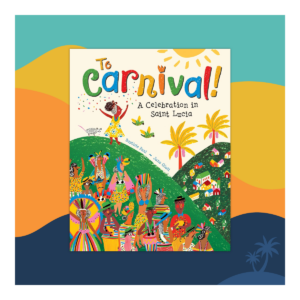 To Carnival!: A Celebration in Saint Lucia by Baptiste Paul
To Carnival!: A Celebration in Saint Lucia by Baptiste Paul
This vibrant story follows Melba as she gets ready for Carnival in Saint Lucia. Baptiste Paul, who was born in Saint Lucia, draws on his own childhood memories to capture the music, movement, and anticipation of the beloved festival. The book highlights joy, identity, and community expression—all central to Caribbean American cultural life.
Classroom Connection: Use this book to introduce students to Caribbean celebrations. In music and art, students can design costumes, explore traditional instruments, or create their own Carnival songs. Connect the lesson to social studies by tracing the history of Carnival and its roots in resistance and renewal.
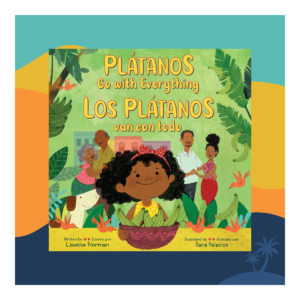 Plátanos Go with Everything by Lissette Norman
Plátanos Go with Everything by Lissette Norman
This playful picture book showcases the many ways plantains are prepared and loved in Dominican American homes. Lissette Norman, a Dominican American poet, celebrates her own family traditions in this ode to food, culture, and belonging. The story is filled with sensory language and cultural pride, highlighting how food connects generations.
Classroom Connection: Invite students to write about their favorite foods and family recipes. In science, study plantain growth and nutrition; in geography, explore where plantains grow and how they’re used globally. Discussions can center on how food builds cultural memory and identity.
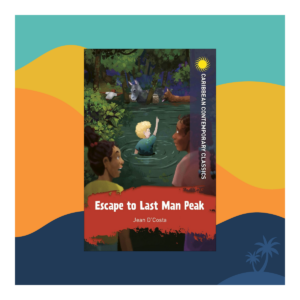 Escape to Last Man Peak by Jean D’Costa
Escape to Last Man Peak by Jean D’Costa
This middle-grade novel follows a group of Jamaican orphans on a perilous journey across the island during a national crisis. Jean D’Costa, a Jamaican linguist and author, captures the voices and strengths of Caribbean youth in a story of survival, courage, and community. It offers a rare Caribbean-centered adventure story with strong social and ethical themes.
Classroom Connection: Trace the journey across a map of Jamaica and connect to geography and survival skills. In literature or ethics, students can reflect on leadership, morality, and the role of youth in crisis. Pair with journal prompts, collaborative writing, or mock debates.
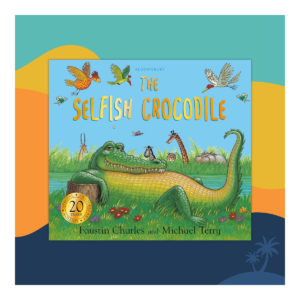 The Selfish Crocodile by Faustin Charles, illustrated by Michael Terry
The Selfish Crocodile by Faustin Charles, illustrated by Michael Terry
In this humorous and heartfelt story, a grumpy crocodile refuses to let other animals near the river—until one day, he needs their help. Faustin Charles, a Trinidadian-born poet and author, brings gentle moral lessons to life through engaging characters and simple language. Though not a traditional folktale, the story draws from the oral and communal traditions of the Caribbean, teaching young readers about empathy, community, and transformation.
Classroom Connection: Perfect for psychology or SEL (social-emotional learning) discussions, this book invites conversations about kindness, conflict, and cooperation. Pair it with activities that explore animal habitats in science, or write alternate endings for creative writing. Encourage students to reflect on how communities thrive through inclusion and care.
Why It Matters
Each of these stories offers students a window into the lives, traditions, and contributions of Caribbean Americans. By including diverse voices and authentic narratives in the classroom, educators build belonging, affirm identity, and deepen student understanding of the world. This Caribbean American Heritage Month, let’s celebrate not only what these stories teach us about the past, but what they make possible for our shared future.
You can continue honoring the contributions of all people by bringing Youth Empowered Stewardship (YES) to your school. YES is an innovative, experiential process that builds authentic partnerships between students and adults to create vibrant, sustainable communities. Through music, movement, and visual arts, facilitators foster multi-generational collaboration to address complex challenges and drive continuous, asset-based improvement.


